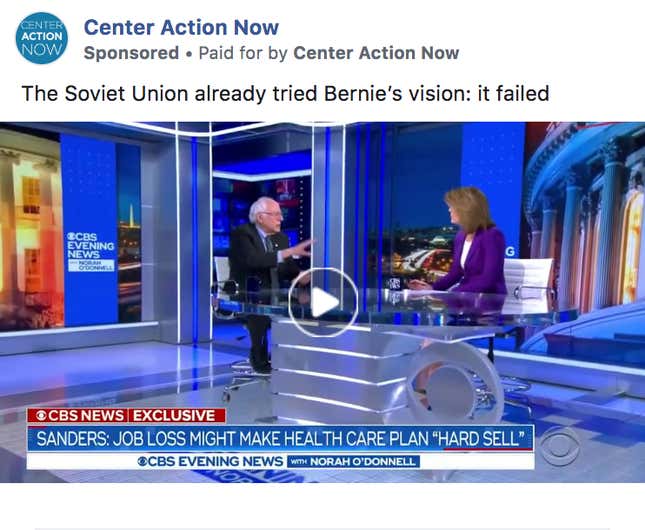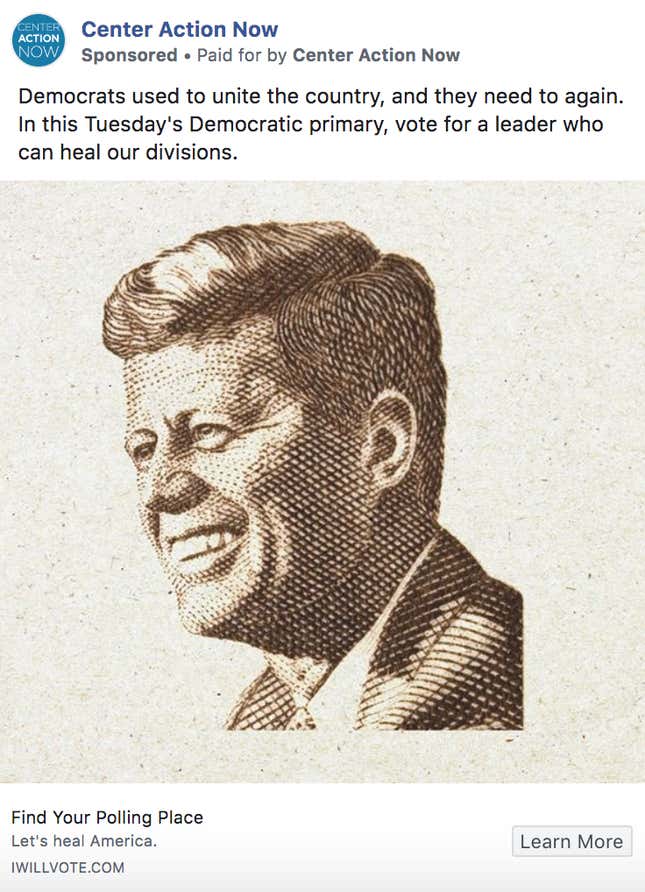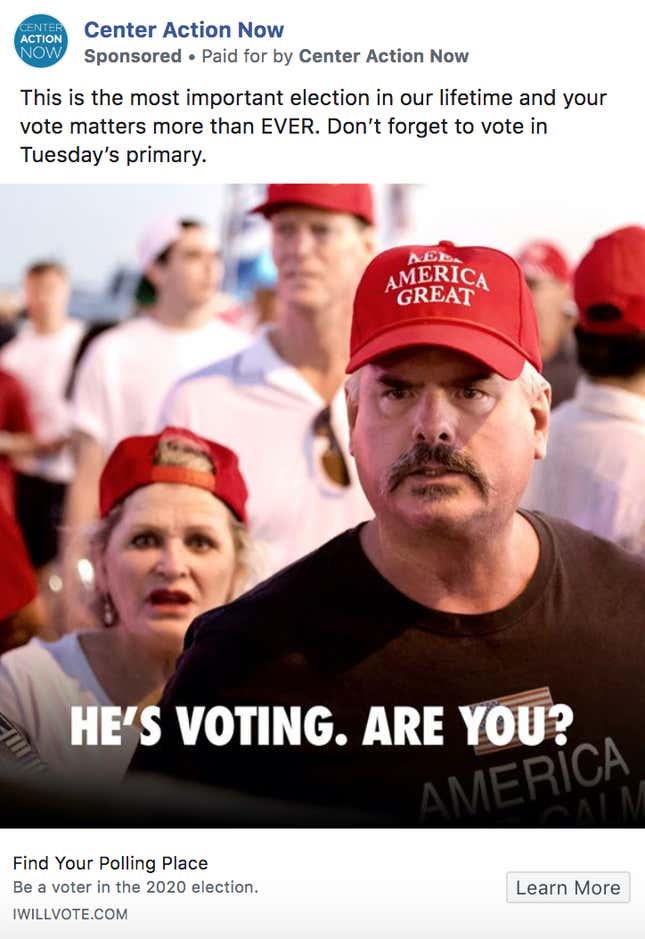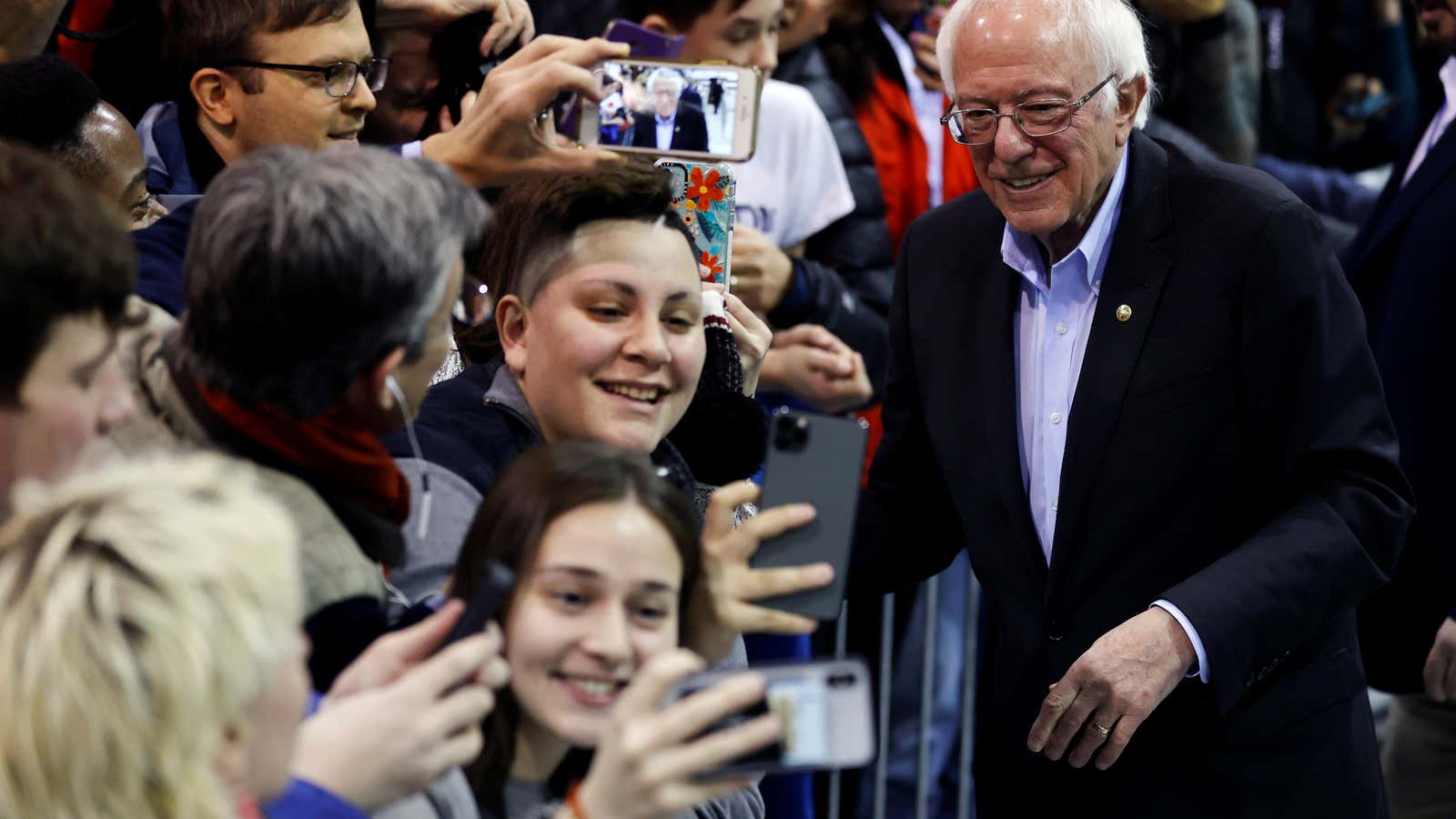New ads paid for by a dark-money group by Republicans critical of Donald Trump were shown to Facebook users in New Hampshire are trying to dissuade voters from voting for Bernie Sanders by scaring them with visions of socialism and the Soviet Union.
One ad declares: “The Soviet Union already tried Bernie’s vision: it failed” with a video of Sanders declaring himself a socialist and predicting “some job loss” as a result of his proposed healthcare plan.

Another, featuring a road sign emblazoned with “Socialism, next exit” says: “Radicals already took over one party. Don’t let it happen to another. On Tuesday join us in voting for a candidate who will work to unify America.”
They denigrate Bernie Sanders, but don’t make clear a preference among the other candidates.
Online research shows who is behind the ad. The group is brand new: it was incorporated in Washington, D.C. on February 3rd. According to its corporate registration, its founders are prominent anti-Trump Republicans, including digital strategist and self-described “apostate Republican” Sarah Longwell and former Jeb Bush staffer Tim Miller. Both are also affiliated with Republicans for the Rule of Law (another anti-Trump group) and The Bulwark, a brand-new conservative publication.
Some of the ads link to a voter-registration website, iwillvote.com, which is paid for by the Democratic National Committee.

Center Action Now’s website declares that the “center must hold” and that the organization “is committed to rebuilding the political center and uniting all Americans around shared values and a pragmatic approach to policy and politics,” the “about” section says. “We activate like-minded Americans to participate in politics in a strategic fashion rather than ceding the arena to those on the extremes,” it adds.
“The group was started for the purpose of educating and informing voters in the center on how they can participate in the process,” said Miller, who is a spokesperson for the group, adding that often, the process is “being dominated by people on the extreme.”
“A lot of people don’t realize how they can engage, particularly when you look at the primary and caucus process. A lot of people who are independent voters, who are lapsed Republican voters in the Trump era, don’t feel like they have a voice, don’t feel like they have a place in the process, and so the majority of our efforts are around helping to inform them how they can participate.”
When asked whether what the group was doing was meddling in the Democratic primary, since Longwell and Miller are known as Republicans, Miller responded that the types of voters Center Action Now was talking to “deserve to have a voice.”
“This is not akin to [conservative talk show host] Hugh Hewitt going on TV saying Trump supporters should vote for the weakest Democrats to help him—that’s meddling. The people who we are trying to talk to are voters who don’t like the president, who want him to be defeated, people who are concerned that both parties have succumbed to the extremes.”
When it comes to the Democratic primary, “if they have a candidate that they support, they should know that they’re able to support them.”
Miller declined to reveal who is funding the ads. Because the group is a 501(c)4, not a political action committee, it is not required to disclose its donors.
The cloaked nature of such organizations has led to this kind of spending being called “dark money.”

The “Bernie’s Vision” ad was only shown to New Hampshire residents over age 35, according to Facebook’s ad library. Sanders’ support is concentrated among younger voters, polls have shown. Center Action Now’s funders spent at least $5,800 on this ad, showing it to at least 85,000 people.
Another ad, which simply urges viewers to vote—with a picture of a mustachioed older man voter wearing a “Keep America Great” hat, captioned “He’s voting, are you?”—was shown to people of all ages. It’s unclear if this ad was shown to any Democrats in New Hampshire—or just to a subset of people who are likely to support someone other than Sanders, specified in Facebook’s advertising dashboard by where they live, their interests or voter data obtained from some third-party source. While Facebook discloses some information about who is shown ads, it doesn’t disclose advertisers’ choices.

It’s likely that the get-out-the-vote ad above was less precisely targeted or attracted more clicks than “Bernie’s Vision,” since it reached more people for less money than the anti-Bernie ad.
This story has been updated with comment from Tim Miller, a spokesperson for the organization.
